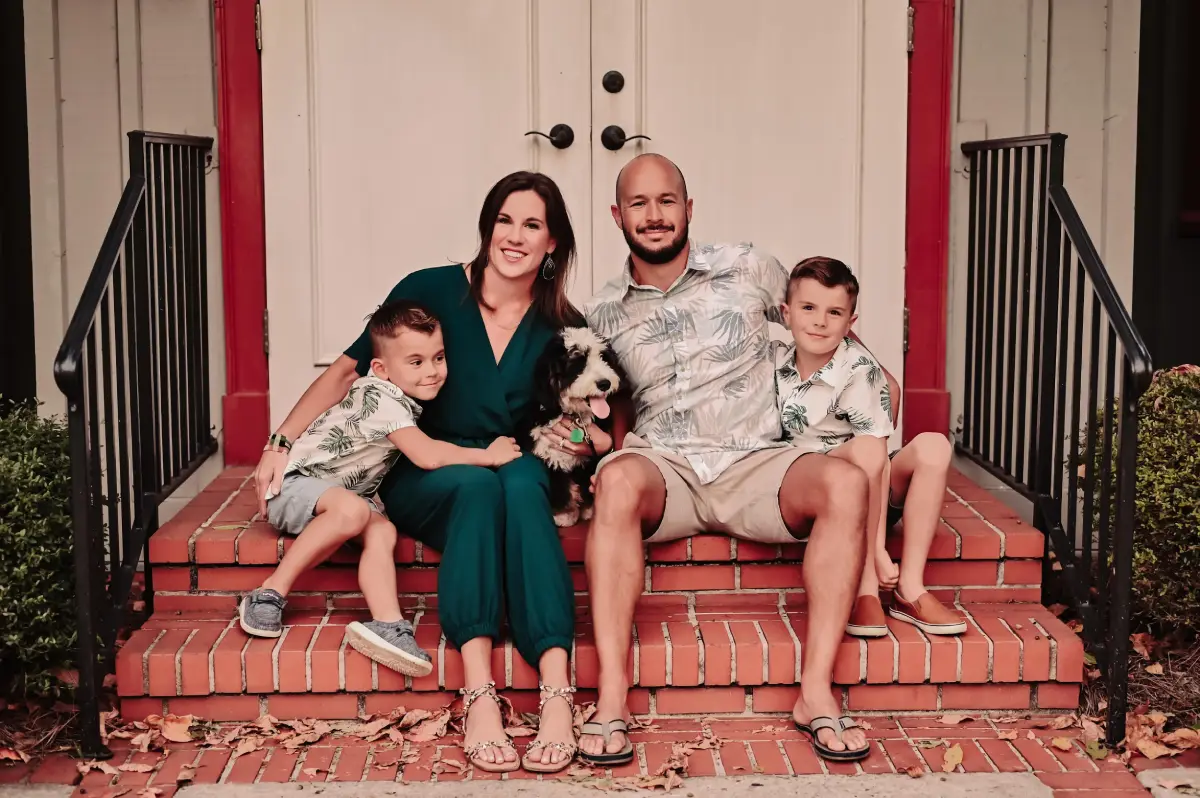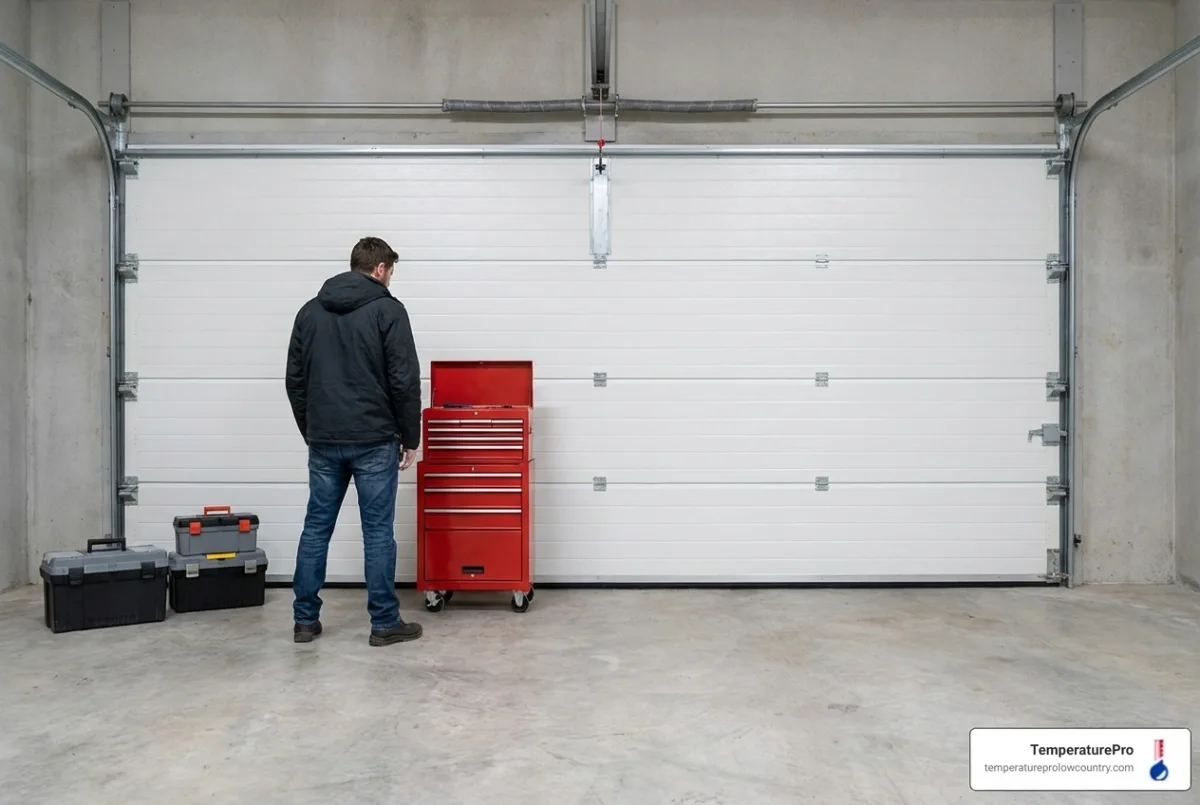

Emergency HVAC Repairs in Rental Properties: Navigating Landlord & Tenant Responsibilities in the Low Country
When an HVAC system fails in a rental property, comfort isn't the only thing on the line. Extreme temperatures can quickly become a health and safety hazard, leading to urgent questions about who is responsible for getting the system back up and running. For landlords, property managers, and tenants in the Low Country, understanding these responsibilities before an emergency strikes is crucial.
While the lease agreement is the primary contract outlining tenant and landlord duties, basic legal principles, like the implied warranty of habitability, often dictate minimum standards for essential services, including heating and cooling, especially during harsh weather. This warranty requires landlords to maintain a property in a safe and livable condition throughout the tenancy.
What Qualifies as an HVAC Emergency in a Rental?
Not every HVAC issue is an emergency. A noisy unit or a slight performance dip, while needing repair, typically isn't considered an immediate crisis. However, situations that threaten a tenant's health or safety, or render the property uninhabitable, usually fall under the emergency category.
Common HVAC Emergencies in Rental Properties:
- Complete System Failure: The heating or cooling system stops working entirely.
- Lack of Heat in Cold Weather: During winter months, especially when temperatures are below freezing, the absence of heat is a significant hazard.
- Lack of AC in Extreme Heat: In the Low Country's hot and humid summers, a lack of air conditioning can quickly create dangerous indoor conditions, particularly for vulnerable tenants like the elderly or those with health conditions.
- Gas Leaks: Any suspicion of a gas leak requires immediate evacuation and contacting the gas company and emergency services. Do NOT attempt to fix this yourself.
- Electrical Issues: Sparks, burning smells, or power outages directly related to the HVAC unit can indicate a serious electrical hazard.
- Significant Water Leaks: While minor condensation might not be urgent, major leaks from the unit can cause property damage and mold issues if not addressed promptly.
What qualifies can sometimes depend on local ordinances or state laws regarding essential services and specific temperature thresholds, but the core principle revolves around maintaining a safe and habitable living environment.
Landlord Responsibilities: Ensuring Habitability
The primary responsibility for maintaining major systems like HVAC generally falls on the landlord. This stems from the duty to provide and maintain a habitable property.
Landlord's Core Duties During an HVAC Emergency:
- Prompt Response: Once notified of an emergency, a landlord or property manager is typically required to respond and arrange for repairs within a "reasonable" timeframe. What's reasonable often depends on the severity of the issue and state/local laws. For genuine emergencies threatening health and safety (like no heat in freezing temps), "reasonable" might mean 24-48 hours. For issues like AC failure in moderate heat, it might be longer, though still requiring urgency in extreme Low Country summers. Legal timelines vary by state; for instance, some states mandate repairs threatening health and safety within 24 hours, while others allow a few days. It is essential to check South Carolina landlord-tenant laws for specifics.
- Arranging and Paying for Repairs: Landlords are responsible for contacting a qualified HVAC technician, like those at TemperaturePro Low Country, to diagnose and repair the system. The cost of these repairs is generally the landlord's expense, provided the issue isn't due to tenant misuse or neglect.
- Communication: Keeping the tenant informed about the status of the repair, when a technician is expected, and estimated repair times is crucial.
Failure to address emergency repairs promptly can have significant consequences for landlords, including potential legal action from tenants (such as repair-and-deduct options or rent withholding, depending on state law and strict legal procedures), financial penalties, and liability for damages or health issues caused by the delay. Neglecting systems can also lead to more expensive repairs or premature replacement down the line.
Tenant Responsibilities: Reporting and Cooperation
While the landlord handles the repair, the tenant plays a vital role in the emergency process.
Tenant's Core Duties During an HVAC Issue:
- Prompt Reporting: Tenants must notify the landlord or property manager as soon as they become aware of an HVAC problem, especially if it seems serious. Delaying notification can worsen the issue and potentially extend the repair time.
- Effective Communication: Report the issue clearly, providing details like what is happening (or not happening), any unusual noises or smells, and when the problem started. Written notice (email, text documented per the lease) is always recommended as proof of notification.
- Allowing Access: Tenants must provide reasonable access to the property for the landlord or technician to inspect and repair the system. Landlords are typically required to provide advance notice before entering, except in cases of genuine emergency.
- Basic Maintenance: The lease agreement should specify minor maintenance tasks, such as changing air filters. If this is the tenant's responsibility, failure to do so can potentially contribute to system failure and might shift some liability.
- Avoiding Damage: Tenants are responsible for damages caused by their misuse or neglect of the HVAC system.
Knowing their rights is important for tenants. If a landlord fails to address an emergency repair within a legally mandated or reasonable timeframe, tenants may have recourse, but it's crucial to follow legal procedures carefully, which often involve providing written notice and potentially consulting local tenant advocacy groups or legal aid before taking actions like withholding rent.
Emergency Protocol: Steps for Both Parties
Clear communication and defined steps minimize stress and speed up resolution during an HVAC emergency.
Protocol for Tenants:
- Assess the Situation: Is it truly an emergency (no heat/AC in extreme weather, safety hazard)?
- Check Basics (if safe): Is the thermostat on? Is the circuit breaker tripped? (Only if you feel comfortable and safe doing so, avoid electrical panels near water).
- Notify Immediately: Contact your landlord or property manager using the method specified in your lease (phone for initial report, followed up by email/text for documentation).
- Provide Details: Explain the problem clearly, mention the date and time it started, and any specific observations (e.g., "the unit isn't turning on at all," "it's blowing cold air when the heat is on," "there's a strange smell").
- Document: Keep copies of all communication (emails, texts) and note down dates and times of phone calls.
- Cooperate with Access: Be responsive to requests for access for inspections and repairs.
Protocol for Landlords/Property Managers:
- Acknowledge Report Promptly: Confirm receipt of the tenant's notification.
- Assess Urgency: Ask clarifying questions to determine if it's a true emergency based on habitability standards and weather conditions.
- Consult Lease: Review the lease for specific clauses on HVAC responsibilities and emergency contacts.
- Contact HVAC Professional: Call a trusted local HVAC service provider experienced with rental properties, like TemperaturePro Low Country, immediately for emergencies.
- Communicate with Tenant: Inform the tenant that the issue is being addressed, provide the technician's expected arrival time (if known), and update them on the repair status.
- Document Everything: Record the date and time of the tenant's report, actions taken, technician visits, repair details, and communication with the tenant. This documentation is vital.
- Arrange Access: Coordinate access for the technician with the tenant, respecting required notice periods unless it's a life-threatening emergency.
The Lease Agreement: Your Blueprint
A well-written lease agreement is the best tool for preventing disputes over HVAC issues. It should clearly outline:
- Landlord's general responsibility for major system maintenance.
- Tenant's responsibility for minor tasks (e.g., filter changes, keeping vents clear).
- How tenants should report repair needs (specific contact information, preferred method like a maintenance portal or email).
- Emergency contact information and procedure for after-hours issues.
- Any clauses regarding tenant liability for damage caused by neglect.
While a lease cannot override a landlord's legal obligation to provide habitable housing, it can set clear expectations and procedures for handling maintenance and emergencies.
Preventative Maintenance: Reducing Emergency Risk
One of the most effective ways for landlords to avoid costly and inconvenient HVAC emergencies is through regular preventative maintenance. Annual or semi-annual check-ups by a professional technician can identify minor issues before they escalate, ensure the system runs efficiently, extend its lifespan, and significantly reduce the likelihood of unexpected breakdowns, particularly during peak seasons. Investing in maintenance benefits both landlord (lower long-term costs, fewer emergency calls) and tenant (consistent comfort, better air quality).
Conclusion
Navigating HVAC emergencies in rental properties requires clear understanding and cooperation between landlords and tenants. Landlords bear the primary legal responsibility to maintain habitable conditions, including functional heating and cooling, and must act promptly in emergencies. Tenants are responsible for timely and clear reporting and cooperating with repairs. By having a solid lease agreement, established emergency protocols, and a commitment to preventative maintenance, both parties can significantly reduce the stress and impact of unexpected HVAC failures, ensuring properties in the Low Country remain comfortable and safe.
For property managers and landlords in the Low Country, partnering with a reliable local HVAC provider experienced in rental property needs is key to ensuring prompt and professional emergency response.
FAQs
Q: What is considered a "reasonable" time for a landlord to fix an HVAC emergency?
A: This varies by state and the nature of the emergency. For issues directly threatening health and safety (like no heat in freezing temperatures), 24-48 hours is often considered reasonable. For other issues like AC failure in less extreme heat, it might be slightly longer, but prompt action is still expected. Always check specific South Carolina landlord-tenant laws.
Q: Can a tenant withhold rent if the landlord doesn't fix the HVAC?
A: Rent withholding is a potential tenant remedy in some states if a landlord fails to make necessary repairs after receiving proper notice. However, this is a complex legal process with strict rules (often requiring depositing rent into an escrow account) and carries risks for the tenant if done incorrectly. Tenants should always consult with local legal aid or tenant advocacy groups before considering this step.
Q: Who pays for emergency HVAC repairs?
A: Generally, the landlord is responsible for the cost of repairing or replacing the HVAC system in a rental property, as it's considered part of maintaining a habitable dwelling. If the damage was caused by the tenant's misuse or neglect, the tenant might be held responsible for the cost.
Q: Is a landlord required to provide air conditioning in a rental property in South Carolina?
A: State laws vary. South Carolina landlord-tenant law requires landlords to maintain the premises in a fit and habitable condition, including maintaining all "facilities and appliances supplied or required to be supplied." If an AC unit is provided, it must be maintained. While not always legally mandated as an essential service like heat in winter across all states, functioning AC in the extreme heat and humidity of the Low Country is often considered essential for habitability, especially if advertised as an amenity or if the lack of it poses a health risk.
Q: As a tenant, how should I report an HVAC issue, especially an emergency?
A: Always follow the reporting procedure outlined in your lease agreement. For emergencies, call the emergency contact number immediately, and follow up with written communication (email, text, or through a property management portal) to create a record of your notification. Be clear about the problem and its urgency.

Financing











.webp)








.avif)
